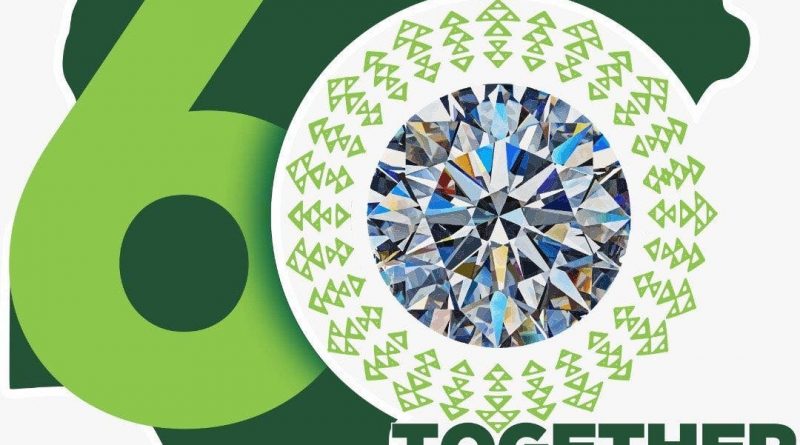Lets end politics of mistrust
By Raymond Oise-Oghaede
After several years of colonial rule, Nigeria was granted independence on the 1st of October, 1960 by the British government. That feat achieved by our nationalists signified their preparedness and capableness of steering the ship of governance of the country within the scope of the law as enshrined in the constitution.
In our journey over the years, our leaders have intensely guided our unity in diversity patriotically. At a point, the road became very rough when the country witnessed its first coup d`etat in January 1966 (which terminated the First Republic); and, the counter-coup of July of the same year.
A closer look at the two events succinctly suggests that they might have been tainted (without prejudice to the persons involved) with ethnic considerations which eventually contributed to the outbreak of the civil war that engulfed the country shortly after. By providence, the war was brought to an end after over two and half years; and, we continued in the journey despite the differences in our tribes and tongues.
Successive military administrations (particularly the IBB`s regime) contributed immensely towards ensuring that all regions/ethnicities were rightly accorded their deserved recognitions and representations. Administrators were appointed for states other than theirs, to encourage the nationalistic, non-parochial and unsentimental discharge of assigned responsibilities. It was this same regime that dismantled the politics of tribal affiliations (associated with the then multiparty system) by the introduction of the two-party system with patriotic tendencies and national spread.
This newly found political understanding made Nigerians shun ethnic and religiously enmeshed politics to achieve the feat of June 12th, 1993 as “the freest and the fairest election in the history of our democracy”. One thing led to the other; and, the outcome of the election was annulled by the government for alleged irregularities and security concerns. Whether right/wrong or true/false; the reasons advanced could not be challenged/disproved in the court of law; because the constitution had been suspended; and, the government was ruling by decrees (as conventional under every military rule).
Notwithstanding the setback, the people remained united and forged ahead to usher in the current Fourth Republic in 1999. Today, we are back to a multiparty system which have now been made more result-oriented due to the patriotic ideologies provided and imbibed during the NRC and SDP era; and, that explains why we still have two dominant parties amongst the lot.
Though, the country has witnessed tremendous positives over the years; we are equally facing some serious socio-economic and political challenges. Presently, our people are gradually going back to the days of old where politicians and electorates see politics as a do-or-die affair.
All the intrigues that contributed to the fall of the previous republics have resurfaced; because we have refused to learn from our mistakes and be guided accordingly. Rather than working together for the betterment of the country; our government and the people in opposition are always at loggerheads; and, are persistently doing things to denigrate one another.
Nothing good comes from the government in the eyes of the people in the opposition; and, the people in the corridors of power also see those in the opposition as enemies of the administration that should not be trusted for any reason. As a result, mutual suspicion has eaten deep into the relationship between the ruler and the ruled; and, this politics of mistrust has been a subsisting phenomenon in our democracy.
Ordinarily, it is normal in politics for politicians to try to outdo one another for electoral gains; but, it becomes dangerous and unacceptable when the tactics employed are capable of spelling doom for the country and the citizenry. Therefore, the earlier we redefine and adopt the right approaches to playing politics of national interest, the better it will be for all of us.
Insecurity could be said to be one of the major problems that have sprung up from this politics of mistrust. So bad is the situation that there is hardly any week that passes without report(s) of the incident(s) of killings in one part of the country or the other. Its recurring trend has generated; and, still generating concerns and reactions from every nook and cranny of the country and the international community. Just recently, the convoy of a sitting governor was attacked twice leaving tens of people dead and others severely injured.
In this situation, it becomes more frightening that if the life of a governor (with full security details attached) could be threatened; what then will happen to the ordinary man on the street? There is therefore no gainsaying the fact that most people are now living in fear of the unknown. It is unthinkable that some people will just take delight in cutting short the lives of fellow humans as if they are killing pests; but, unfortunately, that is exactly the situation we have found ourselves today.
So, whether by the acts of omission and or commission; insecurity has caused disaffection amongst the citizenry. It happened in the previous republics; and, it was the core determining reason why the people voted for change during the presidential election of 2015. Today, the present government has been caught up in the same web and there is a need to urgently take steps to redeem the situation.
This is the time for our leaders to put politics aside and join hands together to save our country. We can only play politics and aspire to electoral positions if the situation in the country is conducive and suitable for the practice of democracy. Therefore, we should always have it at the back of our minds that if we allow insecurity to continue unabated; democracy would be endangered and our lives and aspirations would also be vulnerable.
It will be an act of wickedness and callousness to handle the issue of insecurity with levity; we are in it together; and, it is imperative that all hands must be on deck to fighting the monster together. The government should organize “security awareness village meetings” with stakeholders from the wards through to the federal level to address the problems with a view to unearthing and nipping them in the bud with workable and permanent solutions. Issues that are beyond the Local Government level should be sent to the respective States House of Assembly for deliberations; and, thereafter, recommendations should be made to the governor for appropriate actions.
Issues that exceed the capacity of the individual governor should be forwarded to the Governors` Forum, from where unresolved ones would be escalated to the National Assembly for deliberations and further recommendations to the presidency.
The same strategy should be employed to tackling the issues concerning the agitations for secession by some of our ethnic nationalities. Though, several reasons have been advanced for their disaffections about the present political arrangements; the situation is redeemable through extensive consultations and deliberations.
In as much as people have the right to aspire to self-determination; it is interesting to note that there are procedures that must be followed under the law. It is not as easy as the word (secession) sounds; so, the issue is whether the procedures can easily be achieved or not, considering the intricacies therein.
I will not delve much on this issue because I strongly believe that “we” are capable of resolving whatever misgivings that have enveloped “us” as a people (without prejudice to any person or group of persons with contrary views).
We should be bold enough to face our challenges squarely. It is simply an admission of weakness and lack of political willpower to want to “run away” from showcasing our democratic dexterity and permutations. We should take a cue from the just concluded Edo State governorship elections.
The people resolutely stood their grounds and made their votes to count. We can also make our grievances to be felt and our voices to be heard through our elected representatives. All states are equally represented at the National Assembly; and, the onus is on members to be accountable to us as our true representatives.
If your representatives are not doing the will of the people as expected of them; it means that they are serving their own selfish interests; and, the electorates can exercise their powers to do the needful according to the provisions of the law. Today, people are grumbling and alleging marginalization, Islamization, etc and our elected representatives are not making deliberate efforts to clear the air despite the fact that most of these political appointees were cleared by them. So, “if we look at the mirror, it is definitely ourselves that we will see”. “Let`s think deeply”.
From the foregoing, it is very obvious that if we are able to eliminate politics of mistrust/mutual suspicion from our polity, solutions to surmounting other relative challenges or problems bedevilling us would fall into place.
Long live the Federal Republic of Nigeria.
HAPPY 60TH INDEPENDENCE ANNIVERSARY
Vanguard
Related
Source link




